Big data and analytics in the cloud

In the cloud
It facilitates the implementation of big data analytics projects by reducing infrastructure costs and increasing the flexibility of companies prior to investment.
Big data processing
Why are big data and analytics important in a cloud environment?
Cloud solutions for big data and analytics enable companies to make data-driven decisions, gain a competitive edge and achieve faster business results.
- Data storage
- Real-time analytics
We take care of your business
It is our duty to provide you with a seamless system
The use of big data and analytics solutions in a cloud environment offers a number of advantages.
Fast deployment
Scalability and flexibility


Data storage
Cloud storage for large amounts of data
Actual results
The right place for speed and competitiveness
It is important to monitor, understand and react quickly to operational data flows.
Data analysis
Big data analysis tools and services are used to extract meaningful information from data sets.
Big data processing
Cloud-based big data platforms are widely used for efficient data processing and advanced analysis in various industries.
Data storage
Storage of large amounts of data in reliable cloud storage services ensures easy access, scalability, and enhanced security.

Public Cloud Analytics
Public cloud analytics utilizes shared infrastructure where multiple users access the same resources provided by a cloud vendor. This setup is highly effective for managing large datasets and handling extensive big data workloads, and it supports advanced technologies like artificial intelligence and machine learning, which require significant computing power and scalability. The main advantage of this approach is its cost-effectiveness, as infrastructure costs are distributed among multiple users, making it a more affordable solution. It is ideal for companies seeking scalable, budget-friendly options without stringent requirements for data security or compliance.

Hybrid Cloud Analytics
Hybrid cloud analytics blends public and private cloud environments, enabling businesses to keep sensitive data secure in a private cloud while using the public cloud for general-purpose data analysis. This approach is well-suited for organizations that need to meet regulatory standards while also optimizing costs effectively. By combining the security of private clouds with the cost-efficiency and scalability of public cloud resources, hybrid cloud analytics offers enhanced flexibility and adaptability. It is ideal for businesses that need to balance regulatory compliance with the need for a scalable and cost-effective solution in today’s dynamic market.

Private Cloud Analytics
Private cloud analytics uses dedicated infrastructure for a single organization, which can be hosted either on-premises or by a reliable third-party provider. This setup ensures complete control over the environment, making it ideal for organizations with strict compliance, security, or privacy requirements. While private cloud analytics offers greater control over infrastructure and data, it typically comes at a higher cost due to the need for dedicated resources. This approach is best suited for enterprises handling sensitive data that require robust security measures and need to adhere to regulatory standards like GDPR or HIPAA effectively.
The Benefits That Will Keep You in the Cloud: Cloud Analytics Advantages

Scalability
In the context of big data and analytics in the cloud, scalability refers to the ability to efficiently and dynamically adjust resources based on the volume and processing demands of data. Leading cloud platforms offer scalable solutions that can automatically expand or contract resources, such as computing power and storage, in response to varying workloads. This means businesses can handle large volumes of data and fluctuating data processing needs without manual intervention or over-provisioning resources, optimizing costs. Scalable cloud analytics allow organizations to quickly adapt to increased data demands and ensure performance remains optimal, even as data grows and business needs evolve.

Security
Security in cloud-based big data and analytics involves implementing measures to protect data from unauthorized access, breaches, and other threats. Cloud providers employ a range of security protocols and technologies, such as encryption, access controls, and continuous monitoring, to safeguard data throughout its lifecycle. This includes securing data at rest, in transit, and during processing. Additionally, cloud services often offer compliance with industry standards and regulations to ensure that data handling practices meet stringent security and privacy requirements. Robust security measures in the cloud help maintain data integrity and confidentiality while allowing organizations to benefit from advanced analytics capabilities.

Data Availability
Data availability in the cloud refers to ensuring that data is consistently accessible and operational whenever needed. It involves maintaining high levels of uptime and minimizing downtime so that users and applications can reliably access the data without interruptions. Cloud providers achieve high data availability through redundant storage systems, automated backups, and distributed architectures that replicate data across multiple locations. This approach ensures that data remains accessible even in the event of hardware failures, network issues, or other disruptions, providing continuous access to critical information.

Data Accessibility
Data accessibility in the cloud pertains to the ease with which users and applications can retrieve and interact with data. It involves implementing mechanisms and permissions to ensure that authorized users can access the data they need efficiently. Cloud platforms offer various tools and interfaces for managing access, including APIs, user authentication, and role-based access controls. Effective data accessibility ensures that users can quickly find and utilize data while maintaining appropriate security and privacy controls. This enables seamless integration with analytics tools and supports efficient decision-making processes.
Make the Most of Your Data with Cloud Analytics!
Collaborative Teamwork
As data volumes continue to expand at an unprecedented rate, it’s clear that cloud analytics represents the future of data analysis. Cloud-based solutions offer faster time-to-value, increased agility, and enable broad usage of analytics across organizations. This means more employees can make timely, data-driven decisions—an essential element for achieving business success.
Transparent Processes
However, effectively deploying and managing cloud analytics involves careful planning and execution. From selecting the right cloud type and provider to configuring and maintaining analytics software or opting for analytics-as-a-service, dedicated effort and strategic alignment are required for successful implementation in driving business insights and maximizing return on investment.
Cloud Analytics Expertise
If you need expert assistance with developing, upgrading, supporting, or outsourcing your cloud analytics solution, my team at Darksn and I are here to help you navigate the complexities of cloud technology and ensure successful implementation. Feel free to reach out for our hands-on data analytics expertise and tailored support customized to your specific needs and objectives.
Unlock Insights with Cloud-Based Big Data Analytics
1. Big Data & Analytics in the Cloud – in Stuttgart, Ludwigsburg, Frankfurt, Mannheim, Karlsruhe, Heidelberg, Freiburg, Nuremberg, and Munich
In cities such as Stuttgart, Ludwigsburg, Frankfurt am Main, Mannheim, Karlsruhe, Heidelberg, Freiburg im Breisgau, Nuremberg, and Munich, companies increasingly rely on data-driven decision making. Big Data and modern analytics solutions in the cloud enable efficient collection, processing, and transformation of large volumes of data into actionable insights. Darksn supports medium-sized and large enterprises in developing powerful Big Data strategies — with a focus on scalability, security, and flexibility.
Our solutions are based on state-of-the-art technologies such as Microsoft Azure Synapse Analytics, Google BigQuery, and Amazon Redshift, combined with visualization tools like Power BI, Looker, or Tableau.
2. Leading Cloud Platforms and Tools for Your Big Data Vision
Depending on your business requirements, we rely on:
• Azure Synapse Analytics for integrated data warehousing and real-time analytics
• Google BigQuery as a serverless solution for fast SQL-based analysis
• Databricks on Azure or AWS for AI-powered data processing with Apache Spark
• Amazon Athena for ad-hoc queries directly on S3 data
• Dropbox Business+ for secure, cross-team data storage and sharing
• ETL tools such as Azure Data Factory, AWS Glue, or Google Dataflow for automating complex data pipelines
This infrastructure supports both batch and real-time processing and can be flexibly integrated into any existing CI/CD pipeline.
3. Security & Governance: Cloudflare, Firewall & Data Compliance
Large amounts of data require great responsibility. That's why a holistic security concept is essential. Darksn combines powerful security solutions such as:
• Cloudflare with WAF, DDoS protection, and global CDN for highly available analytics platforms
• Zero Trust architectures and cloud-native firewalls on Azure, Google Cloud, and AWS
• Encryption at file and database levels
• Centralized monitoring & logging via Azure Monitor, Google Operations, or AWS CloudWatch
Additionally, we support you with GDPR-compliant storage, access control using IAM role models, and the implementation of data governance tools like Azure Purview or Google Data Catalog.
4. Darksn – Your Partner for Data-Driven Innovation in the Cloud
As an experienced cloud architect, Darksn guides companies in Stuttgart, Ludwigsburg, Frankfurt, Mannheim, Karlsruhe, Heidelberg, Freiburg, Nuremberg, and Munich through all phases of their cloud data projects — from requirements analysis to successful implementation and optimization.
Our services at a glance:
• Building modern Big Data architectures (Azure, Google Cloud, AWS)
• Integration of ML/AI features with Azure Machine Learning, Google Vertex AI, or Databricks MLflow
• Visualization with Power BI, Tableau, or Looker
• Automated ETL with Glue, Data Factory & Dataflow
• Secure, GDPR-compliant operation of your analytics infrastructure
With Darksn, you secure not only a high-performance data strategy but also a scalable and future-proof cloud analytics solution for the long term.
